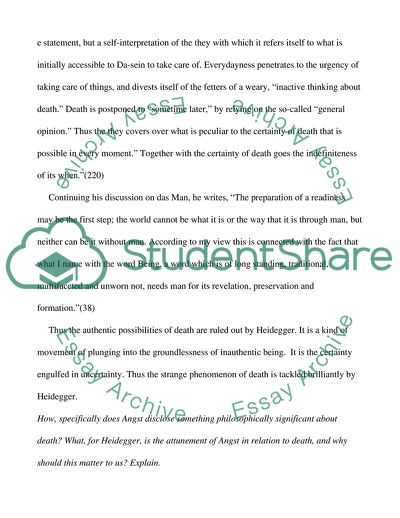Cite this document
(Philosophical and Political Writings by Martin Heidegger Article Example | Topics and Well Written Essays - 1250 words, n.d.)
Philosophical and Political Writings by Martin Heidegger Article Example | Topics and Well Written Essays - 1250 words. https://studentshare.org/philosophy/1734710-martin-heidegger-philosophical-and-political-writings
Philosophical and Political Writings by Martin Heidegger Article Example | Topics and Well Written Essays - 1250 words. https://studentshare.org/philosophy/1734710-martin-heidegger-philosophical-and-political-writings
(Philosophical and Political Writings by Martin Heidegger Article Example | Topics and Well Written Essays - 1250 Words)
Philosophical and Political Writings by Martin Heidegger Article Example | Topics and Well Written Essays - 1250 Words. https://studentshare.org/philosophy/1734710-martin-heidegger-philosophical-and-political-writings.
Philosophical and Political Writings by Martin Heidegger Article Example | Topics and Well Written Essays - 1250 Words. https://studentshare.org/philosophy/1734710-martin-heidegger-philosophical-and-political-writings.
“Philosophical and Political Writings by Martin Heidegger Article Example | Topics and Well Written Essays - 1250 Words”. https://studentshare.org/philosophy/1734710-martin-heidegger-philosophical-and-political-writings.


